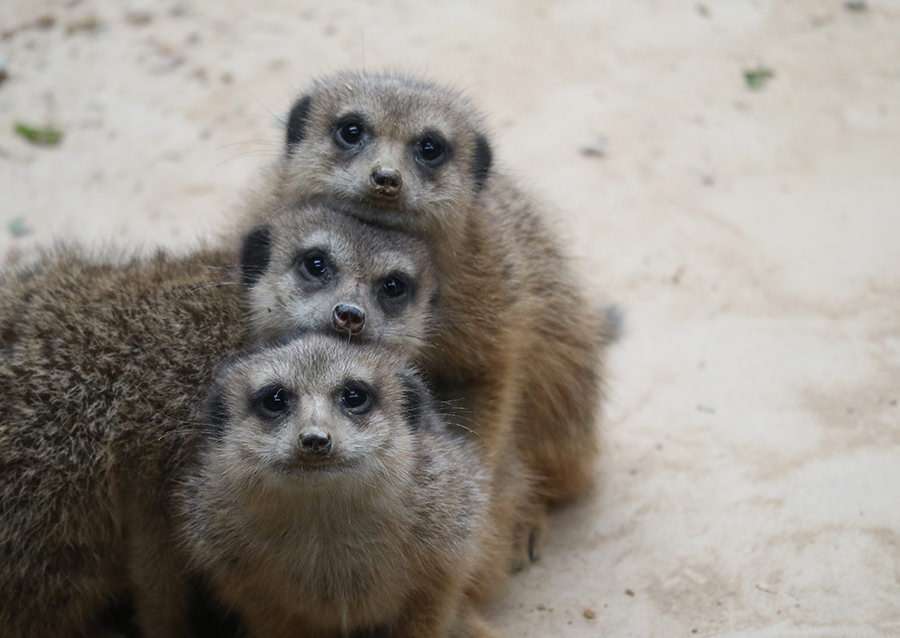Meerkat
Climate Change
Over the past few decades, the daily maximum air temperature has risen in the Kalahari in Southern Africa. There is evidence of declining body sizes of multiple species around the globe due to warmer environment. Unfortunately, meerkat has also become one of the victims over the past 22 years.
Meerkats get most of their water via food consumption and regulate their body temperature by evaporative cooling. When exposed to hot air and soil, the pups may lose their body water quickly resulting in dehydration; hence, causes muscle breakdown and growth reduction.
According to the data collected by the Kalahari Meerkat Project between 1997 and 2016, scientists at the Universities of Zurich and Cambridge have assessed how meerkats will likely adapt to future changes in seasonal rainfall and temperature as a result of climate change. The study also investigated how consistently rising summer temperatures and rainfall fluctuations will affect body mass and growth of meerkats, which eventually leads to lower rate of reproduction and offspring survival. Researchers stated that the next 50 years is critical for population recovery before climate change threatens to wipe out the entire population of meerkats!
The survival of meerkat has been impacting by climate change, so as other wildlife such as corals, giant pandas, sea green turtles, Asian elephants and polar bears. Apart from adopting low-carbon lifestyle, you could donate to "Conservation Hero Support Programme" to empower us to conserve the wildlife and their habitat.

